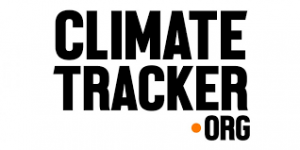
Climate Tracker is looking for four fellows from Africa who will join our global team of journalists to cover the global climate summit in-person and virtually from November 30, 2023 – December 12, 2023.
About Climate Tracker
Climate Tracker was founded in 2015, and has delivered cutting edge training, innovative media campaigns, and supported incredibly talented teams of young reporters around the world ever since. The organisation was founded in the lead-up to the Paris Climate talks, but the idea was born years before. In 2009, a global coalition of climate-focused NGOs called the GCCA, believed that innovative young climate bloggers might be able to influence their national negotiators at the UN climate talks. This idea was known as Adopt a Negotiator. The Adopt a Negotiator became an... read more

ClimateTracker COP28 African Energy Justice Team
| Application Deadline | 03 Aug 2023 |
| Type | Entrepreneurs |
| Sponsor | Climate Tracker |
| Gender | Men and Women |
Aim and Benefits of ClimateTracker COP28 African Energy Justice Team
Two finalists will be fully funded to attend the COP28 conference in Dubai, while an additional two will be part of a virtual team reporting from their preferred locations.
- Travel on a fully funded trip to Dubai to cover the most global climate summit
- Accommodations and stipend coverage for the duration of the fellowship
- Opportunity to live and work with a diverse team of journalists from around the world.
- Receive pre-COP28 online training in the lead up to the conference
- Track your country’s negotiations live and directly
- Receive pre-COP28 online training in the lead up to the conference
- Group discussions and mentoring throughout COP28
- Gain global exposure
- Interview and network with leading environment voices in the world
- Produce impactful climate stories of global relevance
Requirements for ClimateTracker COP28 African Energy Justice Team Qualification
The challenge
- To be in the running for this opportunity, you need to write and publish a story in your national media between now and August 2nd, focussing on how challenging the energy transition can be, and those at risk of being left behind.
- The transition away from fossil fuel energy resources – such as oil, gas and coal – to renewable energy sources like solar and wind is critical to reducing global greenhouse gas emissions and averting a climate catastrophe.
- However, developing countries leaders especially in Africa are of the view that peculiar challenges – such as debt, poverty, conflicts – faced by the continent will affect its abilities to effectively adapt to the changing climate and drive energy transition.
- These developmental challenges are what has led to these leaders calling for a continued use of fossil fuels like gas, a debt-for-climate-swap deal, a mix of fossil fuels and renewable energy, amongst others.
- Meanwhile, the continent has abundant renewable energy resources which makes it well positioned for a clean energy future; yet it struggles, with over 600 million of its population still without electricity access.
- So to be considered for this opportunity, journalists need to write a story that puts into context the challenges Africa is facing in its energy transition drive.
What you could write about
We’re looking for examples of stories that cover local, national and continental scales. Whatever your beat or your audience are, you could consider writing on:
- How reliant is your national electricity grid on fossil fuels
- The impact of fossil fuels on local communities around power plants
- Families who work in fossil fuel extraction, and how they feel about the future
- A resilient community trying to run on renewable power
- The expansion of oil and gas exploration in your country amid transition pledges
- The success or failure of transition efforts by your country
- The plight of a community without energy access
- How finance flows from the global north is affecting the energy transition drive in Africa
What we’re looking for
We’re looking for powerful stories that shine a unique perspective on the energy transition; whether it is on a continental, national or local level. We want journalists to take on the challenge of telling stories that are nuanced, and complex.
You don’t have to worry about telling a COP story, or even a global story if you don’t want to. We want you to report on a story that embodies the challenges of the energy transition, and matter to your readers, wherever they are across the continent. We want journalists to dive into the most pressing energy issues they can find, whether they are local stories, or cover challenges common across the continent.
We are looking for reporters who aren’t afraid to report on the real challenges facing the energy transition across Africa, and interview change-makers, experts and the victims of an unfair or uneven transition.
We don’t expect there are easy answers, and we want journalists to dive into both the challenges and potential solutions, but without feeling like they have to offer an easy answer if one doesn’t exist.
Most importantly, we want journalists who can tell a captivating story for their readers, no matter who they are. The energy transition will impact everyone, and we are looking for journalists who are willing to dive in and tell that story.
What are the requirements?
- Your story can be in any language or style.
- It has to be published in a national media publication in Africa, or with an African focus
- It can be on radio, television, digital or print, but we need a link or evidence of the story
- It can be in any format or length
- It must be an original story, published between July 2nd and August 2nd, 2023
How we will select our fellows
When it comes to selecting our fellows, we will review all the stories, regardless of formats, languages or publication types based on the criteria below:
- The power and uniqueness of the story
- The journalistic quality and complexity of the piece, including interviews and use of sources
- Audience engagement
- Your understanding of the energy transition dynamics in Africa
- If there is any social media promotion
What we’re not interested in
- We’re not interested in an advocacy piece or an op-ed
- We’re also not interested in something you published last year
- We’re not interested in a piece that addresses elements of climate change without discussing energy transition issues specifically
- We’re also not interested in a piece that is overly simplistic or critical without basis
- We’re not interested in stories without real research or multiple sources used
We’re interested in real reporting that dives into nuance, adds context and attempts to answer challenging questions through a powerful and compelling story
Who is eligible?
To be eligible for this opportunity, you need to be:
- Currently living and working in an African country
- Between 18 – 35 this year
- Able to attend or watch at least 1 out of 2 competition webinars in July
- A published journalist, author or reporter
- If you have written on climate change before, great – but this is not required. If you are interested in taking on this challenge, let’s go!
- Able to publish a story between June 30 – August 3rd, 2023
- Able to report on COP28 this year, between November 27 to December 15
- Able to attend a 6 week, online pre-COP training (3-4 hours commitment per week) between October to mid-November
- Not currently funded to attend or report on COP28 already
Application Deadline
August 3, 2023How to Apply
Interested and qualified? Go to Climate Tracker on airtable.com to applyYou will have to publish the story within the application period (June 30 to August 3, 2023) and submit a link to the story here
Wait to get feedback! If you are shortlisted, Climate Tracker will send you an email to schedule a possible interview date, after which we will make the final announcement of successful fellows.
Not to worry, Climate Tracker will organise a series of webinars and training sessions ahead of the conference to get you adequately prepared for the job ahead.
To start you off on putting your application together, we will be organising two webinars:
Energy Transition in Africa : Date: July 17, 2023
Energy Poverty in Africa : Date: July 24, 2023
We would also be having social media engagements on Twitter and Instagram, so do well to follow us on all social media platforms to stay updated on what we have planned.
Sounds interesting right? Then go ahead and click APPLY ?????? and we’ll be glad to review your application!
Deadline for application: August 3,
For more details, visit ClimateTracker website.

